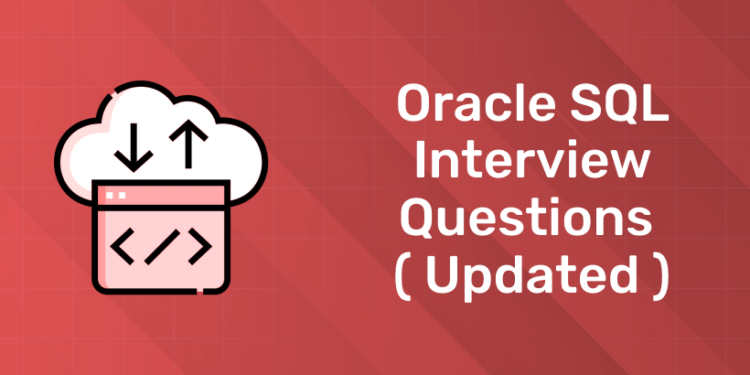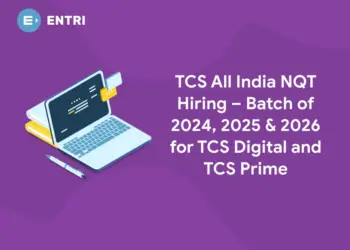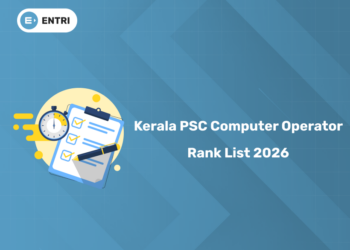Table of Contents
Preparing for Oracle SQL interview involves mastering fundamental and advanced concepts. Updated interview questions reflect current industry trends. Candidates should focus on SQL queries and database management. Understanding joins, subqueries, and indexing is crucial. Efficiently managing transactions and error handling is essential. Practice with real-world scenarios enhances problem-solving skills.
Experience the power of our full stack development course with a free demo – enroll now!
Oracle SQL Interview Questions
About Oracle
Oracle is a leading provider of database management systems. Founded in 1977, it’s headquartered in California. Oracle offers robust solutions for businesses worldwide. Their products include databases, cloud systems, and software applications. Oracle’s innovations drive efficiency and scalability in organizations. They are known for their advanced SQL capabilities. Continuous updates keep Oracle at the industry forefront.
Why Join in Oracle
- Industry Leader: Oracle is a top company in database and software solutions.
- Innovative: Work with new technologies like cloud computing and AI.
- Career Growth: Plenty of opportunities for professional development and advancement.
- Global Impact: Be part of projects that affect industries worldwide.
- Diverse Team: Work with people from different cultures and backgrounds.
- Great Benefits: Competitive pay, health benefits, and other perks.
- Stability: Join a well-established and financially secure company.
Interview Process at Oracle
Oracle SQl Interview Preparation Tips
1. Understand the Basics
- SQL Syntax: Know basic commands like SELECT, INSERT, UPDATE, and DELETE.
- Data Types: Familiarize with data types like NUMBER, VARCHAR2, DATE.
- Functions: Learn common functions such as COUNT(), SUM(), AVG(), MIN(), MAX().
2. Master Advanced SQL Concepts
- Joins: Understand INNER JOIN, LEFT JOIN, RIGHT JOIN, FULL JOIN.
- Subqueries: Practice correlated and non-correlated subqueries.
- Set Operations: Know UNION, INTERSECT, and MINUS.
- Indexes: Learn how indexes work and improve performance.
- Views: Understand how to create and use views.
3. Work on Performance Tuning
- Explain Plan: Use EXPLAIN PLAN to optimize queries.
- Indexing Strategies: Know different types of indexes and when to use them.
- Query Optimization: Write efficient queries and use hints.
4. Practice Real-World Scenarios
- Problem-Solving: Solve SQL problems from coding platforms and past interviews.
- Case Studies: Study SQL use in reporting, data analysis, and transactions.
- Mock Interviews: Simulate interviews and get feedback.
5. Understand Database Management
- Transactions: Learn COMMIT, ROLLBACK, and SAVEPOINT.
- Concurrency Control: Understand locking, deadlocks, and isolation levels.
- Backup and Recovery: Know basics of backup, restore, and recovery.
6. Stay Updated with New Features
- Oracle Versions: Keep up with features in the latest Oracle versions.
- Documentation: Review Oracle documentation and release notes.
7. Utilize Online Resources
- Official Documentation: Refer to Oracle’s official docs for detailed info.
- Online Courses: Enroll in courses and watch tutorials.
- Community and Forums: Engage in forums like Stack Overflow and Oracle Community.
8. Hands-On Practice
- Oracle Live SQL: Practice with Oracle’s Live SQL tool.
- Sample Databases: Use sample databases like HR or SCOTT.
- Projects: Build or contribute to projects to apply SQL skills.
Top Oracle SQL Interview Questions and Answers
1: Which of the following is a JavaScript framework/library?
Q. Explain the difference between RANK and DENSE_RANK functions in Oracle SQL.
Difference between RANK and DENSE_RANK functions in Oracle SQL:
- RANK:
- Assigns the same rank to rows with the same values.
- Skips the subsequent rank(s) when duplicates exist.
- DENSE_RANK:
- Provides consecutive ranking without gaps, even when duplicate values exist.
Q. What is the purpose of the UNION operator in Oracle SQL?
Purpose of the UNION operator in Oracle SQL:
- Combines the results of two or more SELECT queries into a single result set.
- Merges rows from different queries.
- Removes duplicate rows to present a unified result.
Q. Name one advantage of using indexes in a database.
Advantage of using indexes in a database:
- Improves query performance by enabling quicker data retrieval.
- Reduces the need for full table scans.
Q. Differentiate between the WHERE clause and the HAVING clause in Oracle SQL.
Difference between the WHERE clause and the HAVING clause in Oracle SQL:
- WHERE clause:
- Filters rows before grouping.
- Applies conditions to individual rows before they are included in the result set.
- HAVING clause:
- Filters data after grouping (post-aggregation).
- Applies conditions to grouped rows.
Q. How does the Oracle Query Optimizer determine an execution plan for a query?
How the Oracle Query Optimizer determines an execution plan for a query:
- Uses heuristics (rules of thumb) and statistics.
- Considers available indexes, table size, and query complexity to decide the most efficient execution plan.
Q. What is the key difference between ROW-level and STATEMENT-level triggers in Oracle?
Key difference between ROW-level and STATEMENT-level triggers in Oracle:
- ROW-level triggers:
- Fire once for each affected row.
- Allow row-specific actions.
- STATEMENT-level triggers:
- Execute only once for the entire statement.
- Suitable for actions that don’t depend on individual rows.
Q. What do the COMMIT and ROLLBACK statements in Oracle SQL do?
COMMIT and ROLLBACK statements in Oracle SQL:
- COMMIT:
- Saves all changes made in a transaction to the database.
- Makes changes permanent.
- ROLLBACK:
- Undoes the changes in a transaction.
- Reverts the database to its pre-transaction state.
Q. What are some advantages of using bind variables in Oracle SQL?
Advantages of using bind variables in Oracle SQL:
- Improve performance through caching and reusing.
- Reduce the need for parsing.
- Protect against SQL injection attacks.
- Require minimal maintenance.
- Reduce memory usage.
Q. Differentiate between VARCHAR and VARCHAR2 data types.
Difference between VARCHAR and VARCHAR2 data types:
- VARCHAR:
- Standard SQL data type.
- Works across different relational database systems.
- VARCHAR2:
- Specific to Oracle.
- More storage-efficient.
- Does not store trailing spaces, avoiding unexpected results when comparing strings.
- May not be supported by non-Oracle database systems.
Q. How would you explain database roles and privileges in Oracle SQL security?
Database roles and privileges in Oracle SQL security:
- Database roles:
- Named groups of related privileges.
- Simplify security management by allowing multiple privileges to be granted or revoked as a single unit.
- Privileges:
- GRANT statement: Used to grant privileges.
- REVOKE statement: Used to revoke privileges.
Q. Write an Oracle SQL query to find the average salary of employees within each department.
Query to find the average salary of employees within each department:
SELECT department_id, AVG(salary) AS average_salary
FROM employees
GROUP BY department_id;
Q. Write an Oracle SQL query to find employees who earn more than their managers.
Query to find employees who earn more than their managers:
SELECT emp.*
FROM Employee emp
INNER JOIN Employee mgr ON emp.manager_id = mgr.employee_id
WHERE emp.salary > mgr.salary;
Q. How would you update the status column of the orders table to set all orders with a total amount greater than 1,000 to High Value?
Update the status column of the orders table for orders with a total amount greater than 1,000:
UPDATE orders
SET status = ‘High Value’
WHERE total_amount > 1000;
Q. Write an Oracle SQL query to get the date and time of the last 10 logins for a specific user.
Query to get the date and time of the last 10 logins for a specific user:
SELECT login_time
FROM UserLogins
WHERE user_id = ‘specific_user_id’
ORDER BY login_time DESC
FETCH FIRST 10 ROWS ONLY;
Q. Retrieve the top five highest-rated products based on customer reviews from the product_reviews table.
SELECT product_id, product_name, AVG(review_rating) AS average_rating
FROM product_reviews
GROUP BY product_id, product_name
ORDER BY average_rating DESC
FETCH FIRST 5 ROWS ONLY;
Experience the power of our full stack development course with a free demo – enroll now!
Q. Calculate the total revenue generated by each customer in the last three months.
SELECT customer_id, SUM(revenue) AS total_revenue
FROM sales
WHERE transaction_date >= TRUNC(SYSDATE) – INTERVAL ‘3’ MONTH
GROUP BY customer_id;
Q. What is SQL (Structured Query Language)?
SQL (Structured Query Language):
- A standard programming language designed for managing and manipulating relational databases.
- Primary Uses:
- Querying Data: Retrieve specific data from a database.
- Updating Records: Modify existing data within the database.
- Inserting Data: Add new data into the database.
- Deleting Data: Remove data from the database.
- Managing Database Objects:
- Tables: Define and alter the structure of tables.
- Views: Create virtual tables based on queries.
- Indexes: Enhance the performance of data retrieval operations.
Q. What are the different types of SQL commands?
Different Types of SQL Commands
SQL commands can be categorized into the following types:
- DDL (Data Definition Language):
- Used to define and manage all database objects.
- Commands:
- CREATE: Creates a new table, view, or other object in the database.
- ALTER: Modifies an existing database object.
- DROP: Deletes a database object.
- TRUNCATE: Removes all records from a table, including all spaces allocated for the records.
- RENAME: Renames a database object.
- DML (Data Manipulation Language):
- Used for managing data within schema objects.
- Commands:
- SELECT: Retrieves data from the database.
- INSERT: Adds new data into the database.
- UPDATE: Modifies existing data in the database.
- DELETE: Removes data from the database.
- MERGE: Combines INSERT and UPDATE in a single statement.
- DCL (Data Control Language):
- Used to control access to data in the database.
- Commands:
- GRANT: Gives user access privileges to the database.
- REVOKE: Withdraws user access privileges given by the GRANT command.
- TCL (Transaction Control Language):
- Used to manage transactions in the database.
- Commands:
- COMMIT: Saves all changes made in the current transaction.
- ROLLBACK: Undoes changes made in the current transaction.
- SAVEPOINT: Sets a point within a transaction to which you can later roll back.
- SET TRANSACTION: Sets the properties for the current transaction.
Q. What is an Aggregate Function?
Aggregate functions in SQL perform a calculation on a set of values and return a single value. They are commonly used in conjunction with the GROUP BY clause to perform calculations on each group of values in a dataset. Aggregate functions are useful for summarizing data and providing statistical insights.
Experience the power of our full stack development course with a free demo – enroll now!
🚀 Start Coding Today! Enroll Now with Easy EMI Options. 💳✨
Get Hired as a Full-Stack Developer: Master the Skills Employers Are Looking For!
Start Learning With EMI Payment OptionsOracle SQL Interview Questions: Conclusion
Oracle being one of the most sort after companies by the aspirants is very difficult to get through the interview. Going through the above sample interview questions will give you an idea about the types of questions asked in the Oracle SQL Interview. You can use this blog to crack the interview with ease.
🚀 Start Coding Today! Enroll Now with Easy EMI Options. 💳✨
Get Hired as a Full-Stack Developer: Master the Skills Employers Are Looking For!
Start Learning With EMI Payment OptionsFrequently Asked Questions
What should I expect during the Oracle interview process?
- Initial Screening: A call with a recruiter about your background and interest.
- Technical Interviews: Questions on SQL, databases, and problem-solving.
- Behavioral Interviews: Questions about your past work experiences and soft skills.
- On-site Interviews: Multiple rounds with team members, covering both technical and non-technical topics.
- Offer and Negotiation: If selected, you’ll get an offer and discuss salary and terms.
What types of technical questions are asked in Oracle interviews?
- SQL Queries: Writing and optimizing SQL queries.
- Database Design: Questions on designing and structuring databases.
- Performance Tuning: How to make queries run faster.
- PL/SQL: Writing and debugging PL/SQL code.
- Concepts: Basic database concepts and how they work.
How can I prepare for the Oracle interview process?
- Review SQL and PL/SQL: Practice writing and fixing SQL queries and PL/SQL code.
- Study Database Concepts: Learn about database design and indexing.
- Mock Interviews: Practice with friends or use online tools.
- Behavioral Questions: Think about past job experiences and how to describe them.
- Oracle Documentation: Read Oracle’s official guides and resources.
What soft skills are important for an Oracle interview?
- Communication: Explaining your thoughts clearly.
- Problem-Solving: Showing how you fix technical issues.
- Teamwork: Working well with others.
- Adaptability: Learning new things quickly.
- Time Management: Managing your tasks and meeting deadlines.












